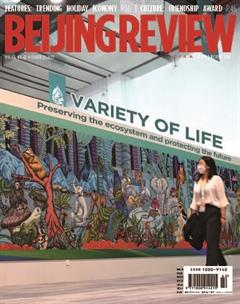Gateway to Shared Prosperity
By Li Fangfang
Wuerhe, located 90 km from downtown Karamay City in the northern part of Xinjiang Uygur Autonomous Region, is home to some 50,000 people from 10 ethnic groups, including Han, Mongolian and Uygur. It is widely known because of the popular Ghost Town scenic spot boasting the Yadan landscape and the dreaded howling of the ferocious winds. Additionally, the district is located on the route to Kanas, an even better-known landmark in northern Xinjiang.
Xinjiang had been a top travel destination long before the region was engulfed by bouts of extremist thought and attacks. Its rich landscapes and inclusive cultures intermingling with numerous ethnic traditions featured high on the list of many explorers from home and abroad. As the region in northwest China has shaken off both absolute poverty and the radicalized mindset that once poisoned its surroundings, its innate beauty has once again attracted travelers.
During this years National Day holiday on October 1-7, the region registered more than 7.6 million trips, with tourism revenue reaching a staggering 4.73 billion yuan ($736 million).
Tourism serves as the gateway for regional residents to attain shared prosperity.
Go-getters
Tourism has opened the door to prosperity for Wuerhe. A milestone in local tourism development was reached in March 2020, when 104 villagers from Wuerhe took the initiative by authorizing the local government to turn their homes into guest houses for tourists passing through. And doing so will add value to their properties.
Locals used to live off farming or grazing, or seek job opportunities in other places. They werent gaining too much from tourism.
“The town was a very isolated community and ‘change was not in its dictionary,” said Han Lijun, vice head of Chagancao Village in the town where most of the 104 trailblazers hailed from.
In 2017, Han had an epiphany. She figured shed do something innovative that would benefit her birthplace Chagancao. When visiting home during one of her college breaks, she saw improved roads replacing the outdated and rugged ones and entertainment infrastructures popping up one by one. Confident in the development momentum of the village, she gave up a job opportunity in the city of Zhengzhou in central China, where she was studying at the time, and returned home following her graduation in 2019.
Han was not the only local resident who came to realize that the gradual changes occurring in Wuerhe could offer a promising future. The district government had already started exploring new methods of development before 2017, namely by activating more tourism resources.

